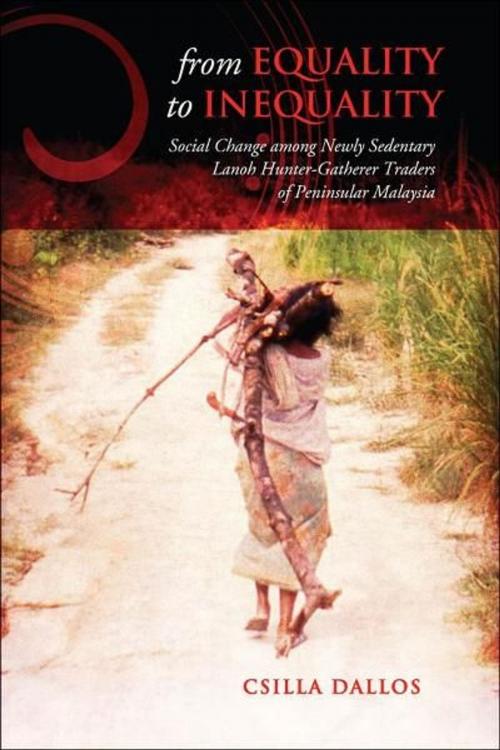From Equality to Inequality
Social Change Among Newly Sedentary Lanoh Hunter-Gatherer Traders of Peninsular Malaysia
Nonfiction, Social & Cultural Studies, Social Science, Anthropology| Author: | Csilla Dallos | ISBN: | 9781442661714 |
| Publisher: | University of Toronto Press, Scholarly Publishing Division | Publication: | April 9, 2011 |
| Imprint: | Language: | English |
| Author: | Csilla Dallos |
| ISBN: | 9781442661714 |
| Publisher: | University of Toronto Press, Scholarly Publishing Division |
| Publication: | April 9, 2011 |
| Imprint: | |
| Language: | English |
The egalitarian society once enjoyed by the Lanoh hunter-gatherers of Peninsular Malaysia is quickly changing. Throughout a year of ethnographic fieldwork among the Lanoh, Csilla Dallos studied and interpreted social change in order to better understand the processes leading to inequality and the concurrent development of social complexity within a community.
From Equality to Inequality provides rich empirical data on the factors within a community that significantly affect the development of inequality, including the effects of sedentism, integration, leadership competition, self-aggrandizement, marginalization, and feuding kinship groups. In this case study, Dallos argues that in order to understand emerging inequality, anthropologists and social scientists need to revisit current conceptions of politics in small-scale egalitarian societies. Offering a new model of developing social inequality that is congruent with the principles of complexity theory, From Equality to Inequality is a sterling example of how anthropological practice can further our general understanding of human behaviour.
The egalitarian society once enjoyed by the Lanoh hunter-gatherers of Peninsular Malaysia is quickly changing. Throughout a year of ethnographic fieldwork among the Lanoh, Csilla Dallos studied and interpreted social change in order to better understand the processes leading to inequality and the concurrent development of social complexity within a community.
From Equality to Inequality provides rich empirical data on the factors within a community that significantly affect the development of inequality, including the effects of sedentism, integration, leadership competition, self-aggrandizement, marginalization, and feuding kinship groups. In this case study, Dallos argues that in order to understand emerging inequality, anthropologists and social scientists need to revisit current conceptions of politics in small-scale egalitarian societies. Offering a new model of developing social inequality that is congruent with the principles of complexity theory, From Equality to Inequality is a sterling example of how anthropological practice can further our general understanding of human behaviour.















